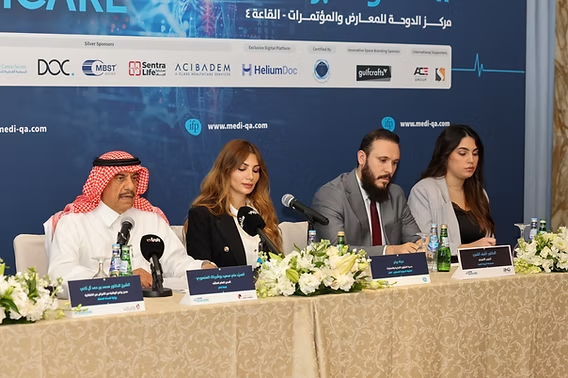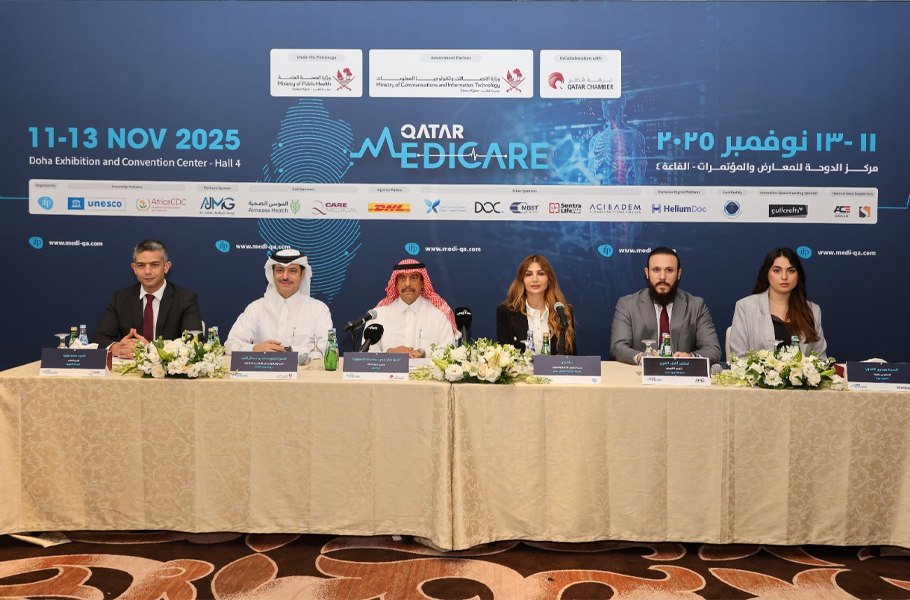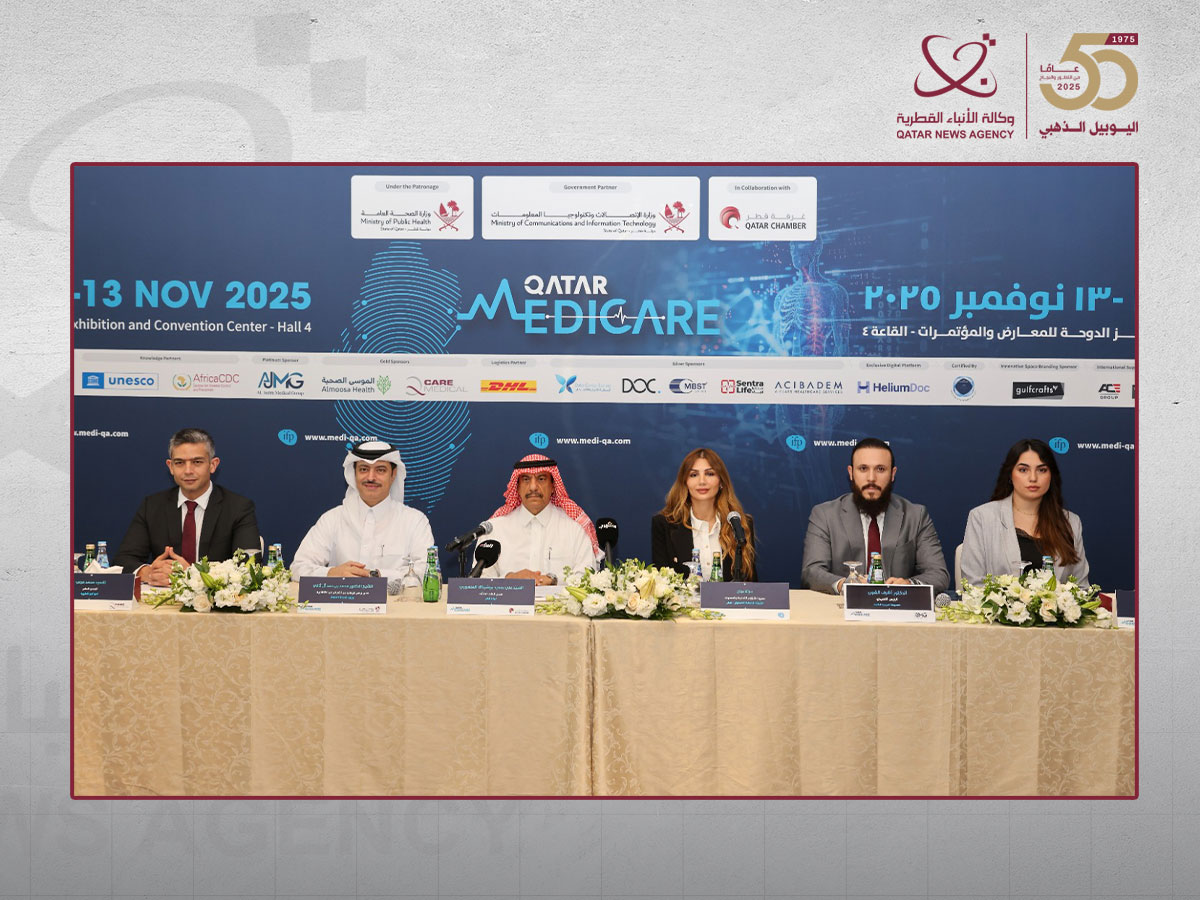Qatar Medicare 2025 arrived not just as an event, but as a promise a promise that healthcare can be more humane, more connected, and more prepared for the rapidly changing needs of people and communities. Walking into the exhibition halls, you could feel an uncommon warmth: clinicians, technologists, policymakers, and patients coming together with one shared purpose to design care that respects the whole person.
A patient first philosophy
At the heart of Qatar Medicare 2025 was a simple yet radical idea: treat patients as people first, not as data points. Speakers and booths made this clear through stories a nurse describing how remote monitoring saved an elderly patient’s independence, a technologist who built a voice interface for people with low literacy, a family sharing how coordinated care eased their burden. These real voices grounded every piece of technology and every policy conversation.
Technology that serves humanity
The fair showcased dazzling technologies artificial intelligence assisting diagnostics, wearable devices that track recovery in real time, and telehealth platforms that bring specialists to remote areas. But the standout theme was not the technology itself; it was how these tools were designed to serve human needs. AI was presented as a collaborator that augments clinicians’ judgment, not replaces it. Devices were celebrated when they preserved dignity and autonomy like discreet home sensors that detect falls without monitoring private moments.

Integrating care across systems
Qatar Medicare 2025 emphasized integration connecting primary care, hospitals, rehabilitation, and social services so patients experience seamless support. Panel sessions explored practical models for shared data, care navigators who help patients through complex systems, and community based initiatives that reduce hospital readmissions. The message was clear: better health happens when the system coordinates around the person, not when services operate in silos.
Workforce empowerment and compassionate leadership
Conversations at the event repeatedly returned to the human workforce. Advances in technology are only as good as the people who use them. Workshops focused on upskilling nurses and allied health professionals, building digital literacy, and fostering compassionate leadership. Leaders shared strategies for preventing burnout by redesigning workflows, prioritizing mental health, and recognizing the emotional labor of caregiving. The aim: create workplaces where clinicians can thrive so they can offer their best to patients.
Accessibility and equity as core values
Qatar Medicare 2025 framed accessibility and equity not as optional extras, but as core requirements for future ready healthcare. Exhibitors presented low cost screening tools, mobile clinics for underserved neighborhoods, and translation services that make care truly inclusive. The discussion included how to design health technologies for different languages, ages, and abilities ensuring innovation benefits everyone, not only those with the easiest access.
Data with ethics and empathy
Data powered many innovations, but the conversations recognized the ethical responsibility that comes with it. There were frank discussions about privacy, consent, and the need to build trust. Developers and policy experts explored transparent data governance models, ways to explain algorithmic decisions to patients, and mechanisms for individuals to control how their health information is used. Respecting people’s stories and rights was presented as central to any technical solution.

Mental health moves to the foreground
For many visitors, a highlight was the focus on mental health. Qatar Medicare 2025 gave mental wellbeing equal importance to physical health, highlighting community based therapies, school mental health programs, and digital tools that support early intervention. Personal testimonies from those with lived experience made the case powerfully: treating mental health with empathy and accessibility saves lives and strengthens communities.
Innovation rooted in local context
While international expertise featured prominently, the event placed strong emphasis on local solutions. Qatari startups and regional initiatives demonstrated technologies and care models tailored to local culture, language, and health priorities. This localized innovation ensures greater uptake and trust and underscores that the future of healthcare must be built with not merely imported into the communities it serves.
Patient education and empowerment
An important thread at Qatar Medicare 2025 was empowering people to take an active role in their health. Demonstrations included simple digital tools that explain test results in plain language, community workshops on chronic disease self management, and family centered care planning. Empowered patients were framed not as passive recipients, but as partners whose insights improve care quality and outcomes.
Sustainability and long term thinking
Sustainability featured as both environmental stewardship and system resilience. Discussions addressed green hospital practices, efficient supply chains, and designing systems that can scale sustainably. There was also a focus on long term planning: investing in preventive care, building data infrastructures that endure, and training future generations of healthcare workers.
Collaboration: public private community partnerships
Qatar Medicare 2025 was a living example of how public agencies, private industry, and community organizations can collaborate effectively. Case studies presented at the conference showed how joint efforts accelerate innovation while spreading risk and aligning incentives around population health. These partnerships were celebrated for bringing resources and expertise together to tackle complex challenges.
From pilot to practice: implementation lessons
Many innovators brought pilot projects and the event offered a space to share honest lessons about implementation. Speakers discussed what worked early stakeholder engagement, iterative design with user feedback, and flexible funding models and what didn’t technology first approaches, lack of interoperability, and insufficient training. The candid conversations provided a blueprint for moving promising pilots into everyday practice.
Stories that moved the room
Beyond the technical sessions, the event was suffused with human stories recovery journeys, caregiver testimonies, and clinicians reflecting on careers shaped by compassion. These moments reminded everyone why the work matters and reoriented conversations toward outcomes that are measured in improved days, restored routines, and calmer families.
What this means for patients and caregivers
For patients and caregivers, the advances and conversations at Qatar Medicare 2025 promise practical change: more accessible appointments, clearer communication, technology that supports independence, and systems that help coordinate care when life becomes complicated. For caregivers, the emphasis on workforce wellbeing and support structures offered hope that their efforts will be better recognized and sustained.
Next steps and hopeful momentum
Qatar Medicare 2025 closed with a sense of forward motion rather than finality. Commitments were made to pilot joint projects, scale successful models, and keep the dialogue open between stakeholders. The momentum feels hopeful because it is rooted in practicality and centered on people — not on technology for technology’s sake.
Conclusion
Qatar Medicare 2025 demonstrated that a future ready healthcare system is possible when compassion and innovation move hand in hand. The event did more than display gadgets; it amplified human stories, tackled tough ethical questions, and sketched practical pathways for better, more inclusive care. If the energy and ideas presented translate into sustained action, patients and communities have reason to expect a healthier, more dignified future.
Do follow Gulf Magazine on Instagram.
Also Read – Lockton’s Bold Saudi Launch Elevates Retail Insurance Leadership



